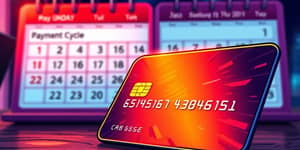
When an unexpected or erroneous charge appears on your credit card statement, it can trigger stress and frustration. Fortunately, federal law empowers you with rights and clear procedures to protect your finances. By understanding the Fair Credit Billing Act and following a structured approach, you can confidently challenge unauthorized charges and secure a resolution.
The Fair Credit Billing Act (FCBA) is a landmark protection enacted in 1974. It guarantees your right to dispute billing errors, fraudulent transactions, and unsatisfactory goods or services. Under this law, you have 60 days from statement date to file a dispute, though some card issuers extend it to 90 days. During the investigation, interest cannot accrue on disputed amounts, and you are not required to pay the challenged portion until a decision is reached.
Before initiating a dispute, pinpoint the exact nature of the problem. Valid reasons include:
Successful disputes rest on timely action and thorough documentation. Follow these six essential steps:
Once your issuer receives a dispute, they launch a thorough investigation. You may see a temporary credit applied to your account, reflecting the disputed amount. Meanwhile, the merchant has the opportunity to represent the charge with additional evidence, triggering a back-and-forth of documentation and reason codes. Ultimately, one of three outcomes emerges:
If you disagree with the result, most issuers provide an appeal process. Make sure to read all communications carefully and follow any additional instructions.
Not every dispute becomes a chargeback. A chargeback is the formal reversal of funds from a merchant’s account back to you after a dispute is validated. Disputes can be categorized as:
To maximize your chances of success, keep these best practices in mind:
Disputing a credit card charge can feel daunting, but the FCBA and industry practices exist to support you. By preparing a solid evidence package, engaging merchants first, and adhering to timelines, you stand on firm ground. Remember that a clear, calm, and documented approach is your strongest ally in protecting your financial rights.
Your credit card issuer’s online dispute center or customer service line is your gateway to justice. Empower yourself by knowing your rights, meeting deadlines, and keeping detailed records. In doing so, you transform a frustrating situation into an opportunity to assert control and safeguard your financial wellbeing.
References













